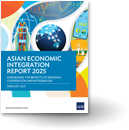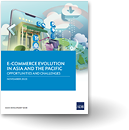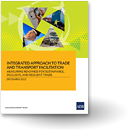Olympic assumptions: Mega-sporting events and trade outcomes
The 2012 Olympics will cost the host country, Britain, an estimated 14.4 billion dollars. In 2008, the People’s Republic of China is reported to have spent more than 42 billion dollars on the Beijing Olympics. These are vast sums to be spent by a country in recession and a developing country respectively.
For the case of emerging economies that bid to host the Olympics, the primary expected reward is that the event will raise their profile on the world stage. This was the objective offered by the Republic of Korea in its bid to host the 1988 Seoul Olympics and Brazil has reiterated it for the 2016 Summer Games. But is there evidence to support this strategy?
The answer is particularly important now that both the International Olympic Committee and FIFA have committed to increasing the promotion of sport in developing and transition economies. As a result, we see more emerging economies on the list of host countries (see figure).
Figure: 10 most recently announced host countries by IOC and FIFA*
| World Cup | Summer Olympics | ||
|---|---|---|---|
| 1986 | Mexico | 1980 | Soviet Union |
| 1990 | Italy | 1984 | United States |
| 1994 | United States | 1988 | Republic of Korea |
| 1998 | France | 1992 | Spain |
| 2002 | Republic of Korea/Japan | 1996 | United States |
| 2006 | Germany | 2000 | Australia |
| 2010 | South Africa | 2004 | Greece |
| 2014 | Brazil | 2008 | Peoples' Republic of China |
| 2018 | Russia | 2012 | United Kingdom |
| 2022 | Qatar | 2016 | Brazil |
Source: IOC for Olympics data and FIFA for World Cup data
As the popular press continues to remind us, mega-sporting events rarely yield a positive balance sheet for their hosts. When South Africa hosted the 2010 World Cup, tourism did not increase by nearly as much as predicted and spending did not come close to matching the cost of building and refurbishing the 10 stadiums required by FIFA to host the games.
In addition, while tourism bumps and infrastructure improvements represent significant gains, it is important to remember that both are more efficiently achieved without hosting a major sporting event.
But what if we look beyond local impacts? Mega-sporting events advertise the host country to a global TV audience, as well as to consumers and investors of every income level. There are few people today who cannot identify the look and sound of a vuvuzela for example.
We might expect that such global exposure will affect the willingness of buyers to purchase host country exports, or attract investors who might otherwise be wary of entering into an emerging market. In fact, there is reason (and, increasingly, evidence) to think that both will occur.
Willingness to buy a country’s exports is at least partly based on perception. In an interview with Disney in the 1990s, the buyer was unwilling to source from Cambodia because of the perception that child labor was rampant in garment factories (which was and is incorrect). Central American exporters claimed that the controversy in the United States over the Central American Free Trade Agreement was a boon since it raised the profile of small suppliers to large US buyers.
There is also some suggestive empirical evidence. An NBER paper finds that staging mega-events does in fact raise exports – by around 30 percent. They then posit that the reason is that the signal being projected reflects a greater commitment to liberalization.
And what of investment? A recent CEPR paper offers evidence that FDI might increase also. The channel they offer is through firms’ expectations about higher local demand. For the case of investment, evidence is considerably more limited as the bulk of analysis focuses on domestic investment which clearly increases.
The outcome of signaling through big splashy events has implications beyond sports. Global signaling and a desire to ‘join the club’ often underlies public spending on vanity projects and efforts to secure membership in international institutions. If in fact signaling has positive and sustained impacts, projects need to be designed to amplify these.
However, the evidence appears to be leaning towards the conclusion that signaling is most successful where countries have already committed to liberalization and improved institutional quality. For countries like Brazil and the Republic of Korea, hosting mega-sporting events as part of a suite of reforms and activities designed to improve engagement in the international community is a reasonable strategy. But for countries like Turkey, which also bid for the 2012 Olympics, resources may be better used in other ways for now.




